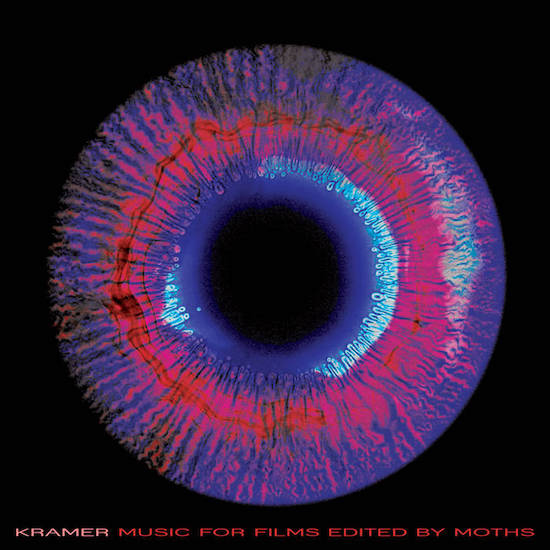Much like a Eugene Robinson or a Veronica Vasicka, Kramer is the type of multi-hyphenate creative talent that seems to have been blessed with an unfair amount of get-up-and-go and right-place-right-time-ness. Not only is he a founding member of Bongwater and creator of the excellent Shimmy Disc label – thereby giving the world King Missile (who he produced) and Ween, among many others – he also helped create slowcore through his superb production work with Galaxie 500 and Low (the latter of which he discovered). Legend has it he even considered releasing the Fat White Family’s debut album. He had the un/enviable job of playing bass for Butthole Surfers on their debut European tour and is an… erm… energetic writer (check the liner notes for Galaxie 500’s On Fire). He also co-wrote what is perhaps Robert Wyatt’s most beautiful song, ‘Free Will and Testament’.
But what of the man’s own music? Kramer has released a slew of excellent solo releases, the latest is called Music For Films Made By Moths, an imagined soundtrack to a series of nonexistent films. Indeed, the sweep of this thing, with its grand chord changes, spacious soundscapes, and nervy propulsion, gives each ambient workout a distinct cinematic sheen. ‘Stars Will Die Tonight’ could accompany a heist film, dealing in suspenseful synth pads and a propulsive bass motif, whereas the distant choral chants and pink noise whooshes on ‘Bukowksi On The Beach’ recalls a graceful pan-wide after a big-budget space battle.
For the most part this album appears to distance itself from the music Kramer is known for. With each grand chord change and gorgeous harmonic resolution, each stately cello rasp and pizzicato pluck, the landlubbing world of scratchy psychedelia and subdued slowcore seems left further and further behind. The dubby excursions of the last two songs, ‘Dreams We Never Dreamed’ and ‘Or Perhaps You Imagined It All’, are surely the most expansive and otherworldly things he’s ever been involved in. Each piece twists and rolls together, like a shoal of exotic fish making stately, wobbling progress through the fathoms-deep murk.
That said, this being the man who played a strapless bass with Butthole Surfers, waddling round the stage like a crab, and this being the man who brought the world King Missile, he can’t resist including little pockets of weirdness: cryptic spoken word samples, distant baby crying noises, and seagull caws speckle the tunes like flies on a window. It’s in the moments that lack these odd excrescences where this weirdness can be missed. The music can very very occasionally lapse into off-the-peg ambient.
What becomes clearer over the stretch of …Moths is how the ghosts of Kramer’s past have clearly influenced this album. In the same way that he’s acted as a lightning rod for so many artists, in a pleasing act of circularity you can hear the plaintive emotion of Robert Wyatt in the chord changes, the crystalline spaciousness of Galaxie 500, and even the ghostly soundscape flourishes found in some of New York Gong, the group in which he cut his teeth. That said, comparisons to the Butthole Surfers are absent. Perhaps maybe next time.


